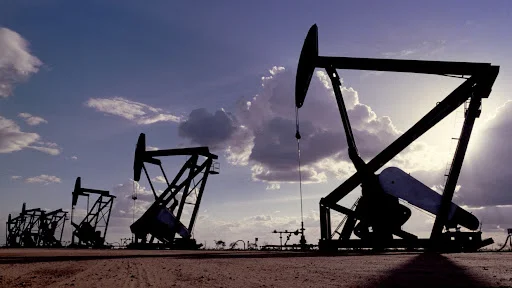Brent crude oil prices surged to over $81 per barrel on Monday, marking a four-month high as the market reacted to new sanctions imposed by the United States on Russian oil exports. These measures, primarily targeting major importers like China and India, aim to curtail Moscow's revenue streams amidst ongoing geopolitical tensions.
The sanctions, announced by President Joe Biden’s administration, focus on key Russian oil producers and transport vessels, raising concerns about potential disruptions in global supply chains. Brent crude climbed by nearly 1.5% to $80.6 per barrel, while US West Texas Intermediate (WTI) rose over 1.5% to $77.7 per barrel. Analysts, including those from Goldman Sachs, have projected that Brent crude prices could surpass $85 per barrel in the coming weeks.
This policy shift has sparked fears of higher energy costs worldwide. In the United States, rising oil prices could translate into increased costs at the pump, further straining household budgets amid existing economic pressures. Meanwhile, India, a major purchaser of Russian crude, faces significant challenges in maintaining its energy security. The country has relied on discounted Russian oil to stabilize its energy market, and the sanctions could disrupt these arrangements, leading to higher import costs and inflationary pressures.
Economic experts warn that these sanctions could exacerbate global inflation, particularly in developing economies. "The ripple effects of these sanctions are far-reaching," said a senior energy analyst. "As Russian oil supplies shrink, global markets will tighten, pushing prices higher and creating economic vulnerabilities for import-dependent nations."
The sanctions also highlight the complexities of navigating global energy policies amidst geopolitical conflicts. While the Biden administration aims to pressure Russia over its actions, critics argue that the approach risks unintended consequences, including backlash from key allies who depend on Russian energy.
As global markets brace for potential volatility, the focus now shifts to how other oil-producing nations, particularly OPEC members, respond. Any coordinated action to stabilize prices could play a crucial role in mitigating the fallout of these sanctions.
The unfolding situation underscores the delicate balance between addressing geopolitical priorities and safeguarding economic stability. For consumers and businesses alike, the coming weeks could prove pivotal in shaping the trajectory of global energy markets.
Tags
International

